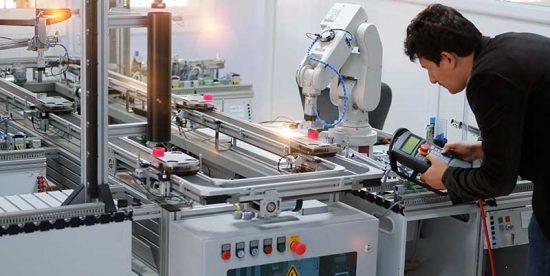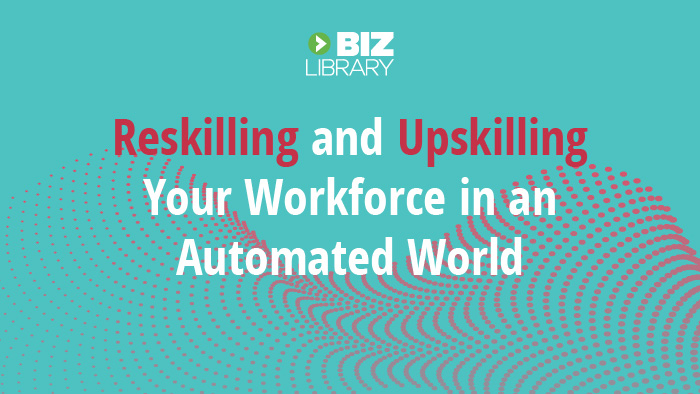By Rob Coolidge
Smart Manufacturing is changing the face of manufacturing — and as a smart manufacturer, you need to keep up with the changes. The manufacturing industry is shifting to integrated and flexible advanced technology and tools throughout the supply chain, and, according to experts, the global Smart Manufacturing market will reach nearly $400 billion by 2025. That means if you haven’t already started your journey down the Smart Manufacturing path, now’s the time to take the first step.
Smart Manufacturing radically impacts the performance of the manufacturing ecosystem through measurable improvements in speed, agility, quality, throughput, costs, safety, asset reliability, and energy productivity. Consequently, it improves profitability, which in turn accelerates investments in innovation.
The Time to Start Is Now
Due to social distancing and travel restrictions imposed in the wake of COVID-19, now is an ideal time to join other manufacturers who are exploring smart factory solutions such as virtual reality (VR), augmented reality (AR) and mixed reality (MR) — collectively known as extended reality (XR) — and industrial artificial intelligence (AI). The pandemic has instilled a sense of urgency in manufacturers, who have become much more aware of the need to modernize and readjust their traditional systems to take advantage of the powerful technologies now available.
Keep in mind, though, that while these cutting-edge technologies can help you sustain pre-COVID productivity and output while complying with new physical distancing guidelines, they can also expose you to new cyber vulnerabilities.
Already known as one of the industries most susceptible to cyberattacks, manufacturing is becoming even more at risk — in areas ranging from finances and operations to compliance and strategy — due to the advanced and emerging digital technologies found in smart factories.
But that doesn’t mean you shouldn’t take advantage of the strategic benefits offered by Smart Manufacturing’s digital technology. You just need to take extra steps to protect your company from the effect of current and future cyber threats and vulnerabilities.
Addressing Cybersecurity
One way to address cybersecurity is to reconsider your approach to digital technologies and smart factory initiatives. Rather than taking the typical approach of combining advanced technologies and process innovation to address a specific use-case business challenge or opportunity, consider your use cases from a cybersecurity perspective.
Let’s say you’re planning to install a smart warehousing or conveyance solution to automate repetitive, time-consuming tasks. To lessen your vulnerability to cyber threats such as denial-of-service attacks, unwarranted bot programs and unauthorized access, you first need to confirm the accuracy of your technology inventory, verify your process of assessing business impact, monitor your file integrity, and compare your internal events with external threat intelligence. Taking these precautions allows you to align your risk responses to the criticality and likelihood of attacks.
You can also minimize the possibility of cyber threats while continuing to utilize Smart Manufacturing to its full potential by incorporating Smart Manufacturing training into your development of the current and future generations of manufacturing workers. Training comes in many forms, from apprenticeships to online training. And these opportunities are often offered in conjunction with local educational institutions such as high school career and technical education (CTE) providers, community colleges and universities.
How can you get started with Smart Manufacturing? Regardless of your company’s size, you need to invest in technology, equipment, and people. But first, you need to prepare your current workers with the knowledge and skills to implement the technology as there are going to be skill gaps.
How We Can Help
BizLibrary and Tooling U-SME are committed to helping you train your workforce through a specialty producer partnership. Of Tooling U-SME’s more than 500 online courses, more than 50 focus on Smart Manufacturing, with new lessons being added quarterly. In fact, they are adding nearly 100 new eLearning courses on various aspects of Smart Manufacturing, including 12 new courses on additive manufacturing as well as courses on cybersecurity, data collection and machine learning.
In addition, Tooling U-SME is launching XR labs to deliver training as a bridge between theory and on-the-job training.
Tooling U-SME’s newest Smart Manufacturing titles include “Design for Direct Energy Deposition,” “Introduction to Digital Enterprise Strategy,” “Design for Additive Manufacturing,” Introduction to Machine Learning and Artificial Intelligence,” “Lightweighting Materials” and “Robot Maintenance.”
To find out more about Tooling U-SME’s Smart Manufacturing courses offered through BizLibrary, ask your BizLibrary representative about our specialty manufacturing library.
Introducing new Smart Manufacturing technology into the workforce means there are new skills that employees need to learn. Reskilling and upskilling your current workforce is vital to success. Check our our ebook full of information on how to upskill and reskill employees as we work in a more automated world.
About Rob Coolidge
Rob Coolidge is the director of business development and sales at Tooling U-SME and leads the Corporate Small Business and Government and Education sales teams and the Business Development team. The teams he leads work with companies and organizations to create a plan to increase existing employee’s knowledge as well as new employees get up to speed as quickly and efficiently as possible.

